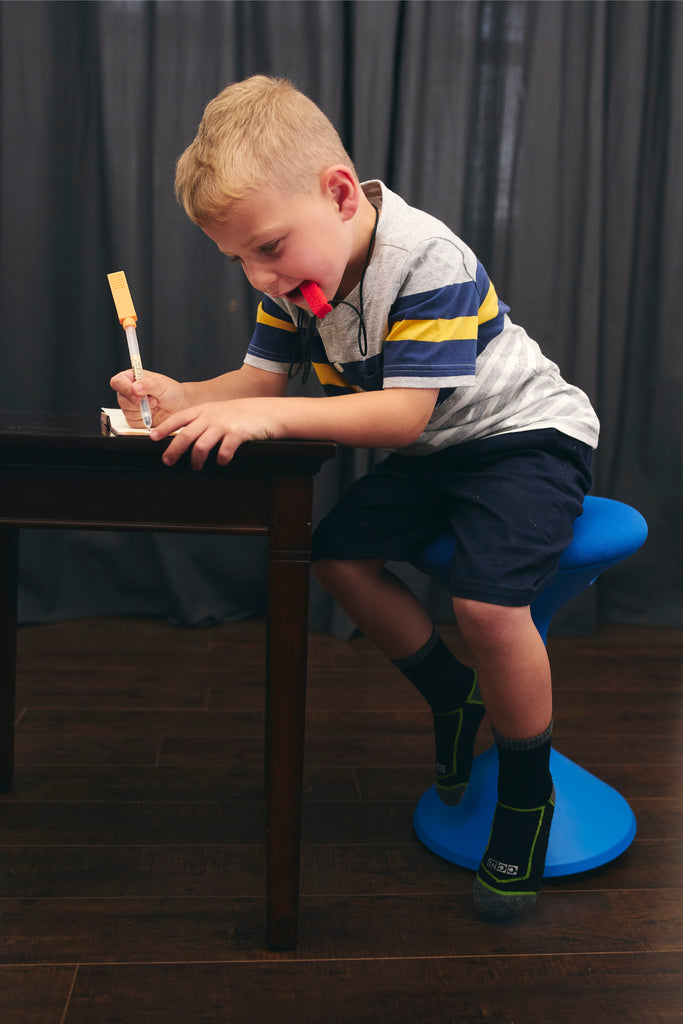Sit down. Stay Seated. The classic classroom mantras.
Fidgeting, rocking back and forth, and restlessness are all too common among younger children in the classroom. Consequently, students who can't sit still are deemed as "misbehaved".
However, many children who seem "misbehaved" actually fall within the sensory processing disorder (SPD) spectrum. As they face unique challenges driving their "misbehavior" here are few culprits for fidgeting tendencies amongst children with SPD:
- They are Sensory Seekers
- They have underdeveloped Core and Back strength
- They have an underdeveloped Vestibular (Balance) system.
For children on the spectrum, these challenges aren't unique to the classroom but apply to any seated task. However, every child's need is different, so it's imperative to see why your child can't sit still.
- Ask. If your child is verbal, ask your child what the task at hand is, if they respond they may be actively focused.
- Observe. If your child tries to accomplish the task but disrupts focus through fidgeting or movement,
For children with SPD, when challenges aren't situational, usually their root cause is from a Vestibular sensory disorder.
What is Vestibular Sensory Disorder?
The vestibular system is in charge of maintaining balance, posture, and ones overall orientation in space. With Vestibular Sensory Disorder, that sense of space is lost. Those unable to process vestibular input move and fidget more than the typical person, in hopes of gaining that stimulation.
What is Active Seating?
Active seating for children means they are free to move, wiggle, or wobble in a seated position. This active but controlled movement provides just enough sensory stimulation to satisfy a child's sensory needs.
Sensominds' Wobble chairs do just the trick, allowing children to move while doing seated work and activities. The constant movement engages a child's core and back muscles, and the stabilization promotes vestibular stimulation. In the end, the child is satisfied and can now focus and attend to the seated work at hand.
Fidgeting and restlessness for children with SPD mean they are deprived of sensory stimulation. Integrating wobble chairs may seem like small adaptations to a child's everyday tasks but can make a world of difference. Check out more of our resources on how to better support your child!


Leave a comment: